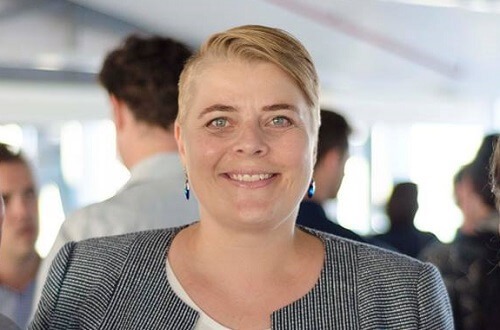![]()
To help usher in an exciting New Year, a number of startup founders, accelerator heads and ecosystem stakeholders will be sharing with us their plans for the new year and their biggest wish for the local entrepreneurship ecosystem in 2019.
Gauteng is home to most of South Africa’s tech startup founders (55%), according to the 2018 Ventureburn Tech Startup Survey. In spite of this, startup founders in Cape Town are still more successful.
Ventureburn revealed in November that 36% of Western Cape startups report turning a profit or generating significant revenue, compared to 22% in Gauteng.
Cape Town is also home to success stories like Triggerfish animation and Sea Monster animation and games, e-commerce examples like Yuppiechef, Takealot.com, and fintech startups like Yoco, wiGroup, SnapScan, Prodigy Finance, Zoona and Jumo.
Fin24 reported that investors are drawn to the Mother City, thanks to the range of quality startups, tax incentives and access to the rest of Africa.
The Silicon Cape Initiative is a major contributor to the tech ecosystem in the Western Cape. The initiative partners with the likes of tourism, trade and investment promotion agency Wesgro, incubators like Launch Lab and Workshop17, accelerator AfricArena and the non-profit, South African Business Angel Network.
What Silicon Cape is focusing on
Silicon Cape Initiative is a Cape Town-based non profit organisation bringing together tech entrepreneurs, developers, investors and other stakeholders.
Last year, tech entrepreneur Boitumelo (Tumi) Menyatswe was appointed as the hub’s new ecosystem manager and she forms part of its new all-female leadership team. This forms part of Silicon Cape’s way forward to move away from the tech industry’s image as a “boys club”.
The organisation promises to prioritise diversity as a key focus area some years ago, and has spent and continues to spend dedicated resources on creating a diverse workforce internally as well as being an activist in the ecosystem driving the agenda.
Menyatswe said in an previous interview an important focus point for her would also be looking into ways in which Cape Town, Johannesburg, and Lagos can collaborate better to achieve impactful results and avoid duplication.
Dr Sumarie Roodt, chairperson of Silicon Cape Initiative and one of the board directors of the initiative, is excited about their plans for 2019 and says they’ve had an amazing year in 2018. “2009 started with two prolific entrepreneurs, 10 years later we are ranked as one of the top, emerging markets in the world.”
The founders of Silicon Cape Initiative are Vinny Lingham and Justin Stanford.
Dr Roodt spoke about their plans for Silicon Cape Initiative for 2019.
How do you see Silicon Cape continuing to help entrepreneurs this year?
We have exciting plans for the new year. We have been working to secure new partnerships on the continent and around the world, to ensure a larger number of world-class showcase and networking events and opportunities are available to our members; and to create a diverse hub of innovation for Africa and the world here in the Cape region.
We are also bringing on new team members and cannot wait to introduce them to you all. Watch this space!
Africa has a host of thriving tech hubs, but they can’t achieve the necessary global traction in isolation. Silicon Cape will strive to bring them together with a unified pan-African purpose here in Cape Town, seen by international investors as the gateway into Africa.

How are you planning to achieve this?
We’re focusing on our four strategic pillars:
Connect stakeholders to each other and to resources; amplify the stories of successes and challenges for peer learning and positioning of the ecosystem globally; create resources and cohort communities; advocate on behalf of the collective.
How big is the Silicon Cape ecosystem?
The answer isn’t a simple one – it depends on how you define the criterion “big”.
If we look at the recently published report entitled Evaluation & Network Analysis of the Cape Town-Stellenbosch Tech Sector by Endeavor Insight, Cape Town is Africa’s Tech capital and there are 450 – 550 entrepreneurial companies in the Cape Town-Stellenbosch area, employing between 40,000 to 50,000 people – more than double that of the tech sectors in Lagos and Nairobi, which respectively employs 9000 and 7000 people.
I think that ‘productivity’ may be a more insightful criterion to use when referring to the ecosystem from a measurement and evaluation perspective.
What are some of the developments you are hoping for in the coming year, with regard to the ecosystem, the entrepreneurs themselves and support mechanisms available?
Cape Town’s tech startup ecosystem, much like the broader economy, still suffers from the duality of, on the one hand, a more mature and privileged network where existing social capital supports a positive growth spiral; and, on the other hand, a historically-disadvantaged entrepreneurial community where the social capital to take their businesses beyond ideation is under-developed. Silicon Cape needs to create the social capital for these entrepreneurs to thrive. We hope that the membership model will allow us to do this more effectively.
Also, we want more support. Anyone who wants to support the ecosystem can go onto the website www.siliconcape.com, please sign up at the Membership category.
What is your wish for SA entrepreneurs for 2019?
To start considering themselves not just as equals but as leaders in the global innovation space.





